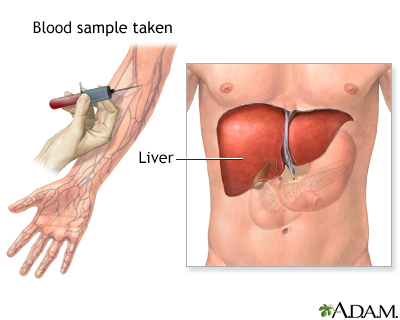
Overview of the Albumin Test
The albumin test is a cornerstone of diagnostic medicine, designed to measure the concentration of albumin, a vital protein produced by the liver, in the blood or urine. Albumin serves multiple critical functions:
- Maintaining oncotic pressure: Albumin prevents excessive fluid leakage from blood vessels into surrounding tissues, ensuring proper fluid distribution in the body.
- Transporting substances: It binds and carries hormones, fatty acids, vitamins, drugs, and other essential molecules through the bloodstream.
- Nutritional status indicator: As a major protein in the blood, albumin levels can reflect overall nutritional health and protein intake.
This test is most frequently used to evaluate liver and kidney function or to detect malnutrition. It is instrumental in diagnosing, monitoring, and managing conditions such as chronic liver diseases (e.g., cirrhosis), kidney disorders (e.g., nephrotic syndrome), and systemic inflammation.
Reasons for Ordering the Albumin Test
Healthcare providers may order an albumin test in response to a variety of symptoms, conditions, or risk factors:
Symptoms Prompting the Test:
- Liver-related issues: Jaundice (yellowing of skin and eyes), fatigue, abdominal swelling (ascites), and unexplained weight loss.
- Kidney-related problems: Peripheral edema (swelling in the hands, feet, or face), reduced urine output, or frothy urine.
- Malnutrition indicators: Significant weight loss, muscle wasting, or delayed recovery from illness or surgery.
High-Risk Populations:
- Individuals with chronic conditions such as diabetes, hypertension, or autoimmune disorders like systemic lupus erythematosus.
- Patients with a history of heavy alcohol consumption, chronic hepatitis infections, or malabsorption syndromes (e.g., Crohn’s disease or celiac disease).
- Hospitalized patients or those in intensive care units, where albumin levels are critical markers of clinical progress.
Test Procedure and Method
Sample Collection:
The albumin test typically involves:
- Blood test: A sample is drawn from a vein in the arm to measure serum albumin levels.
- Urine test: In cases of suspected kidney damage, a 24-hour urine collection may be performed to calculate the albumin-to-creatinine ratio.
Laboratory Analysis:
- Serum albumin: Assessed using the bromocresol green (BCG) dye-binding method or immunoturbidimetric assays.
- Urine albumin: Measured via high-sensitivity immunoassays, enabling early detection of kidney dysfunction.
These methods provide precise and reliable results to evaluate albumin’s concentration.
Preparation and Guidelines
Before the Test:
- General guidelines: Most albumin tests do not require fasting. However, inform your healthcare provider about all medications, supplements, or herbal remedies, as some can influence results.
- Urine-specific preparation:
- Follow instructions for 24-hour urine collection if applicable.
- Avoid vigorous exercise or high-protein meals before the test, as these can temporarily alter albumin levels.
During the Test:
- Blood test: Performed by a trained technician; the procedure takes only a few minutes.
- Urine test: Patients may need to collect all urine output over a 24-hour period in a provided container.
Interpreting Results
Normal Ranges:
- Serum albumin: Typically between 3.5 and 5.0 g/dL.
- Urine albumin: Less than 30 mg/g creatinine is considered normal.
Deviations:
- Low albumin levels (Hypoalbuminemia):
- Causes: Liver disease (e.g., cirrhosis, hepatitis), kidney disease (e.g., nephrotic syndrome), systemic inflammation, malnutrition, or protein loss from burns, infections, or major surgeries.
- Symptoms: Fatigue, swelling, or fluid retention (edema).
- High albumin levels (Hyperalbuminemia):
- Causes: Dehydration, severe diarrhea, or a high-protein diet.
- Symptoms: Rare and usually indicative of an underlying issue rather than a primary condition.
Clinical Implications and Next Steps
How Results Guide Care:
- Low albumin levels: Prompt evaluation of liver function (e.g., ALT, AST, bilirubin tests) or kidney function (e.g., BUN, creatinine).
- High albumin levels: Investigating hydration status and dietary patterns.
Follow-Up Actions:
- Advanced imaging (e.g., ultrasound, CT scans) for liver or kidney abnormalities.
- Nutritional counseling for patients with malnutrition.
- Monitoring with repeated albumin tests to assess treatment efficacy.
Frequently Asked Questions
- How accurate is the test? The albumin test is highly accurate, especially when conducted using standardized laboratory methods. Variability is rare but may occur due to dehydration or certain medications.
- Are there risks involved? Minimal risks are associated with blood tests, such as slight bruising at the puncture site. Urine collection is non-invasive and risk-free.
- When can I expect results? Most labs deliver results within 24-48 hours, depending on their workflow and test complexity.
- What should I do if my results are abnormal? Consult your healthcare provider for a comprehensive interpretation. Additional tests may be necessary to identify the underlying cause.
Final Thoughts and Recommendations
The albumin test is a versatile and indispensable diagnostic tool, providing critical insights into liver, kidney, and nutritional health. Its results, when combined with clinical evaluations and other laboratory tests, enable healthcare providers to make informed decisions regarding diagnosis and treatment. Patients should maintain open communication with their healthcare providers to fully understand their results and develop a personalized care plan. Regular monitoring and timely follow-ups enhance the effectiveness of medical interventions and improve long-term health outcomes.
